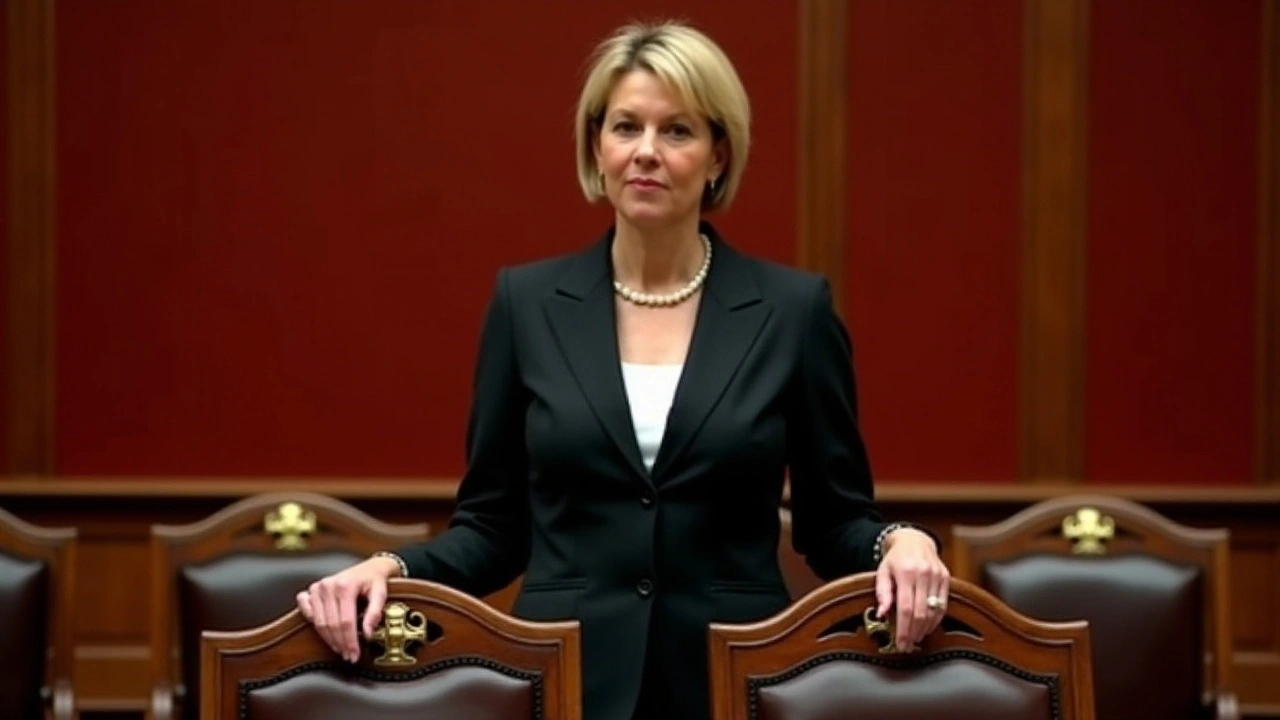Sue Gray's Resignation and New Role
Sue Gray, a prominent figure known for her no-nonsense approach to civil service, recently stepped down from her role as the chief of staff to Sir Keir Starmer, the leader of the opposition in the United Kingdom. She has now transitioned to a new part-time position functioning as Sir Keir's envoy for the regions and nations. This development comes after a period of intense speculation and commentary that threatened to overshadow her previous role at No 10 Downing Street. Gray’s resignation stirred the political waters, giving rise to widespread discussions within political circles.
The role of an envoy, especially in the context of a political party, is crucial. It involves acting as the main point of contact between the leader and various regional representatives. Sue Gray's ability to navigate complex political landscapes makes her a particularly apt choice for this position. Her appointment reflects Keir Starmer's intention to maintain strong connections across the constituents and stakeholders in different parts of the country. There are, undoubtedly, challenges ahead as she balances her responsibilities with the expectations pinned on her by party members and regional partners.

Eligibility for Severance Pay
Following her resignation, the matter of severance pay surfaced, raising questions about what Sue Gray is entitled to receive. Pat McFadden, Chancellor of the Duchy of Lancaster, affirmed that Gray would indeed be eligible for a severance package. Speaking about the situation, McFadden explained that while he could not discuss Gray's personal contractual terms, standard procedures regarding severance would be followed. This is a typical process for those leaving senior government positions.
Contractual Agreements
The confirmation regarding Sue Gray's severance pay by McFadden is significant. It indicates that the departure of Gray from her chief of staff position was handled with adherence to the legal and procedural framework governing such transitions. Severance pay is typically offered to cushion the financial impact of unemployment while individuals transition to new roles or pursue other opportunities. Though Gray has taken up a new position, the offer of severance pay reflects the considerations and negotiations typical for individuals at such levels of influence and responsibility.
Furthermore, the confirmation from McFadden dispels some of the rumors and speculations stirred by outlets such as the Guido Fawkes political blog. The blog had hinted that Gray was negotiating for both a severance package and a substantial salary in her new envoy role. However, McFadden's statement suggests that Gray's entitlements are governed by previously established contractual agreements that are standard in government roles.

The Controversy of Political Roles and Severance
The issue of severance pay in political roles often comes under scrutiny, primarily due to the implications it may have on taxpayer money. Public servants, especially those who deal directly with the government’s most sensitive issues, like Sue Gray, often have lengthy careers over which they build a substantial body of work. A shift in roles, therefore, brings about questions of compensation and the fairness of remuneration packages offered to departing officials.
Critics argue that severance pay may not be justified when the individual is transitioning into another role shortly after. However, proponents underscore the necessity to adhere strictly to contractual agreements, which protect individuals from the financial instability typically associated with employment transitions. Pat McFadden's emphasis on contractual obligations highlights the government's aim to maintain transparency and fairness in such matters.
Gray’s Future in Politics
As Sue Gray begins her new role as an envoy, the political community awaits to see how she will leverage her extensive experience to foster relations across the regions and nations. Gray has a reputation for meticulousness and a knack for diplomatic tact, which has served her well in past roles. Her influence, combined with the responsibilities attached to her new position, present her as a potential key player in shaping the future dynamics of regional political interactions.
Sue Gray's transition and the ensuing financial discussion emphasize the complexity and sensitivity often involved in political career changes. As with any position of high influence, these transitions must be handled delicately, ensuring that both the interests of the individual and the public are adequately considered.
Ultimately, Sue Gray's journey from her previous role to her current one underscores broader themes in politics: the balancing of professional expectations with personal ambitions, and navigating the often rocky terrain of public perception versus private contractual agreements.






Write a comment